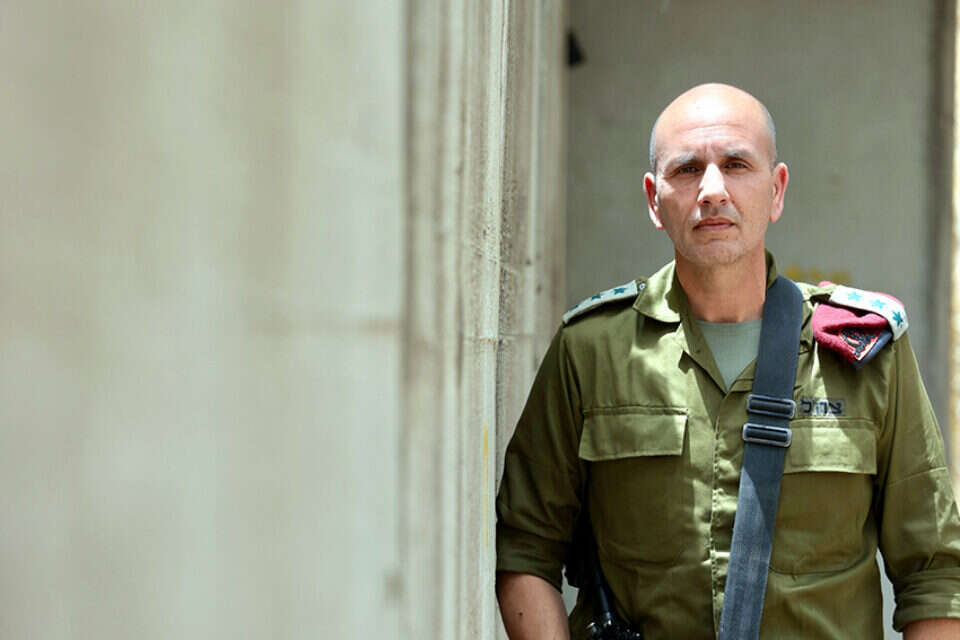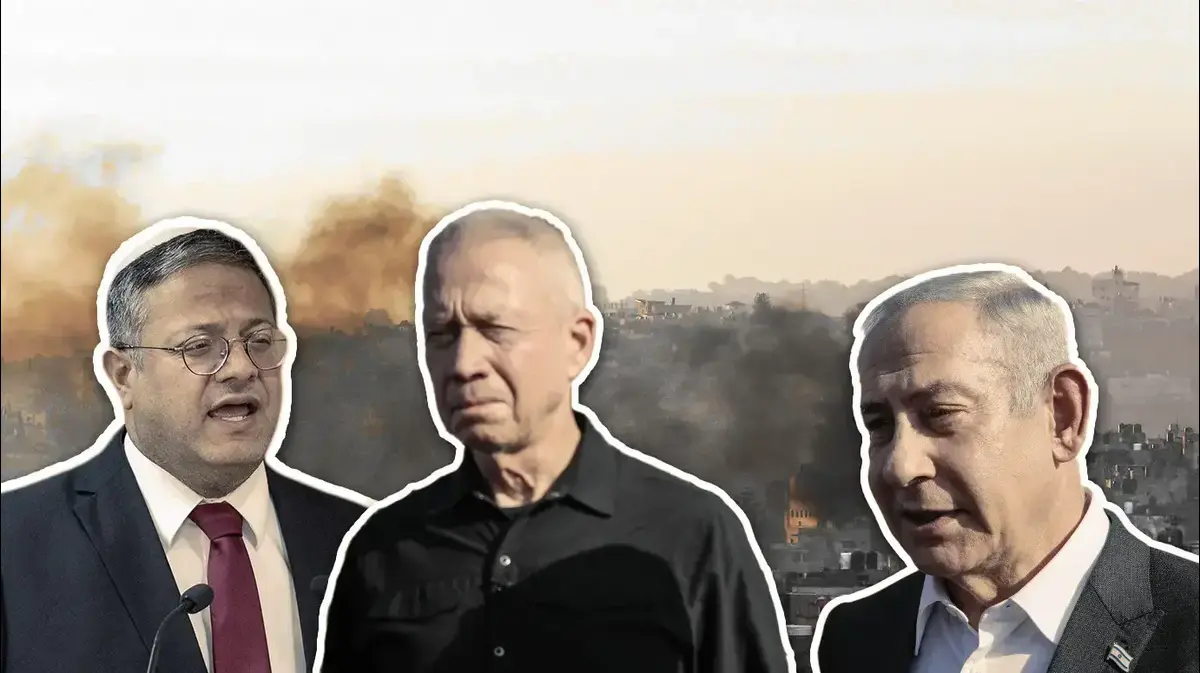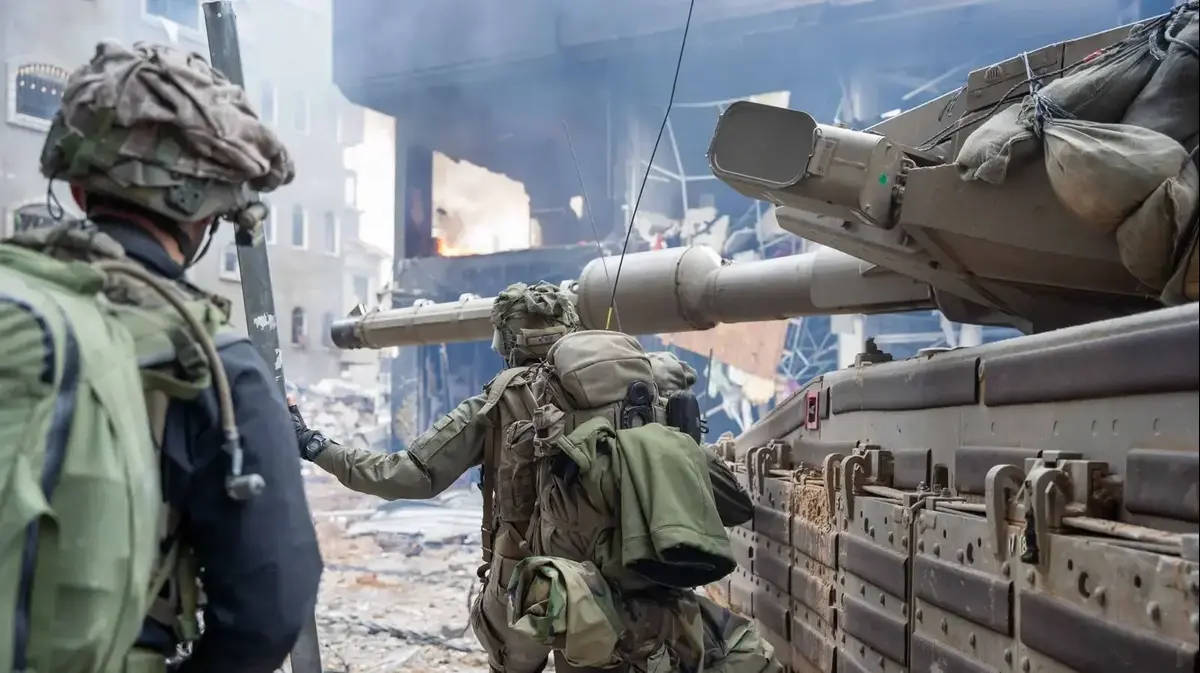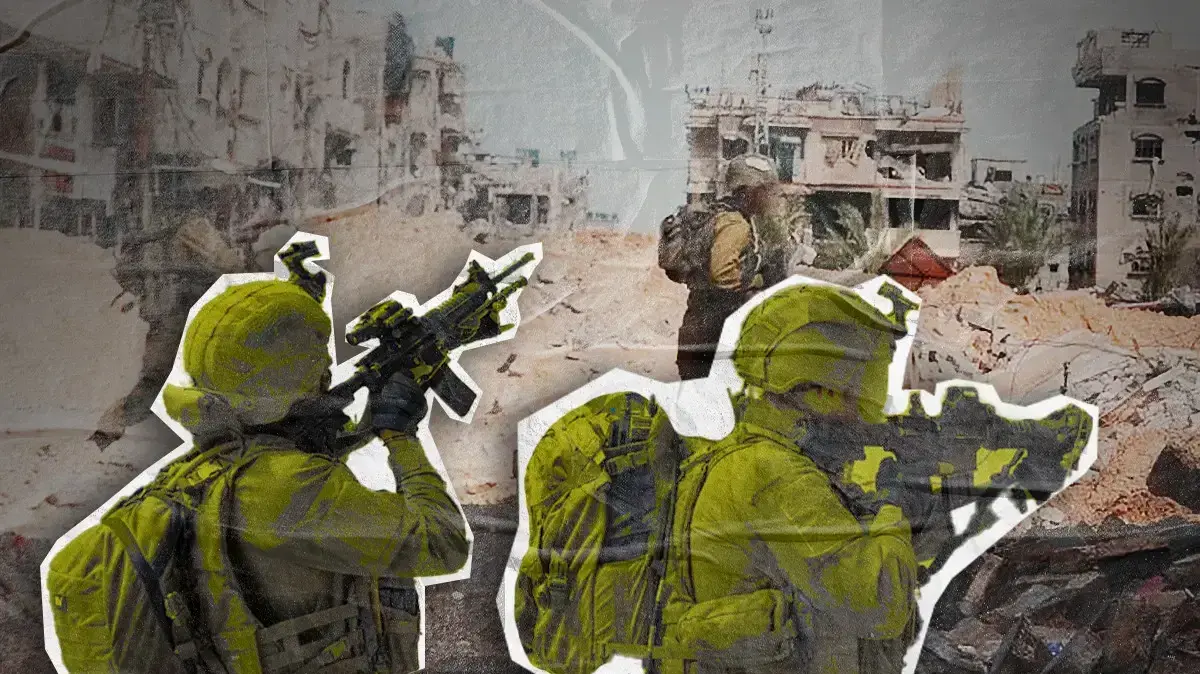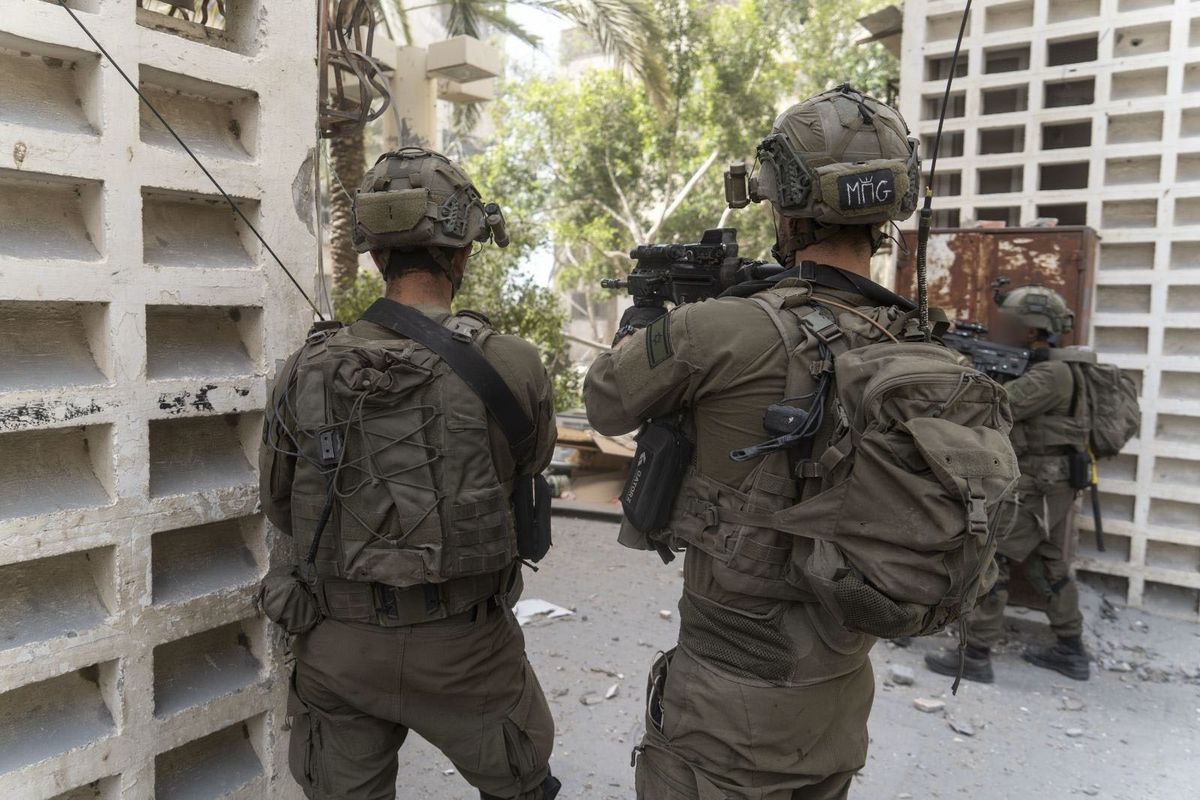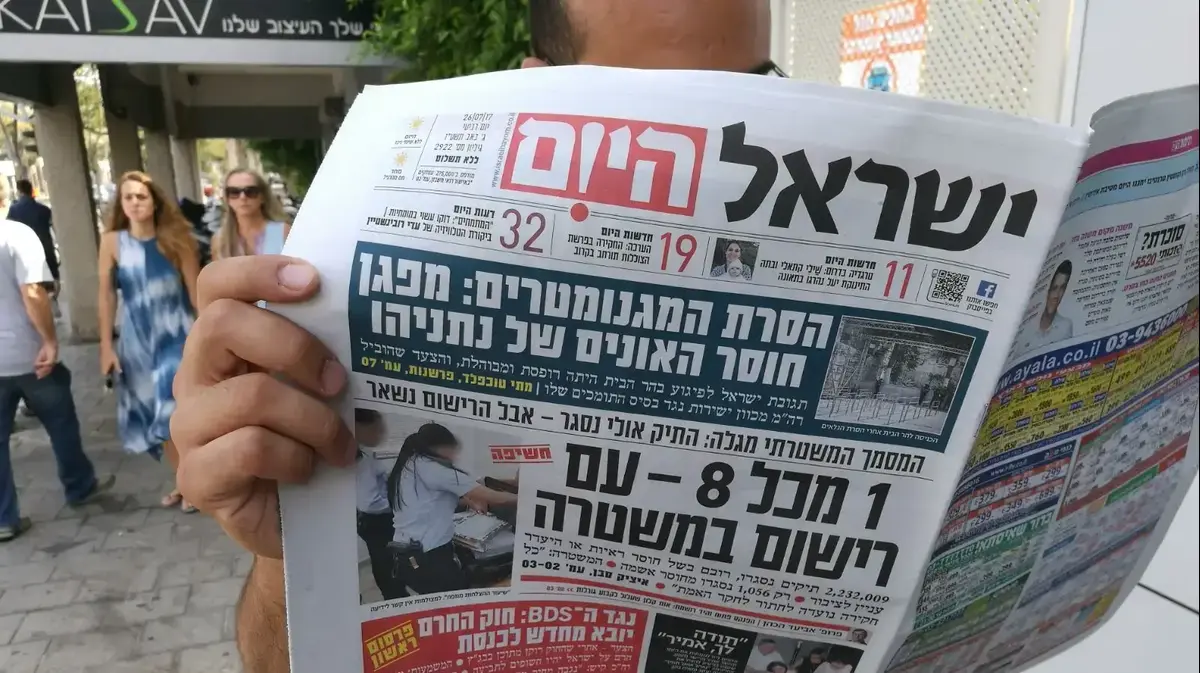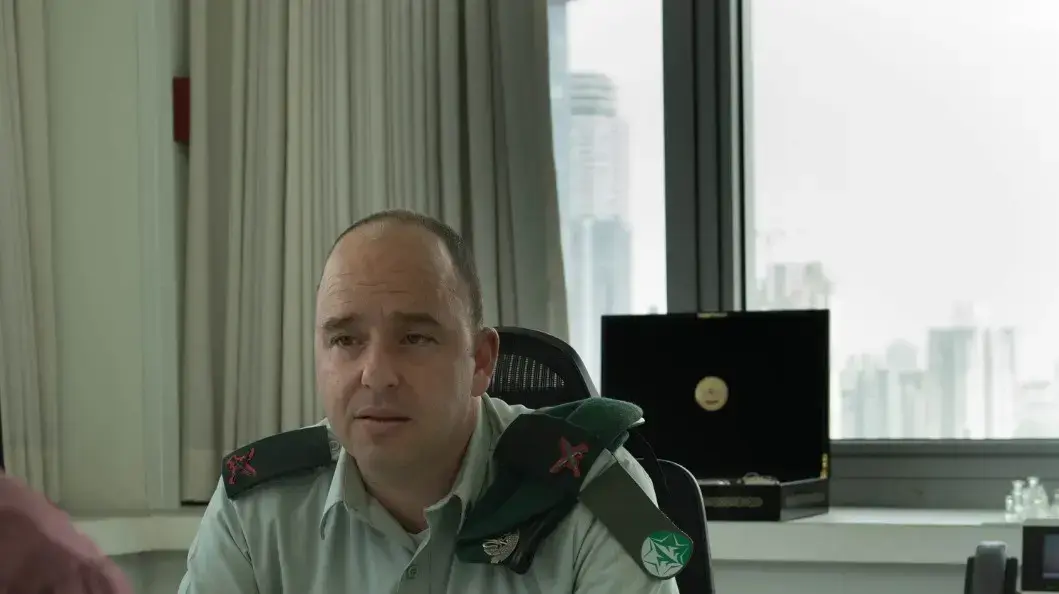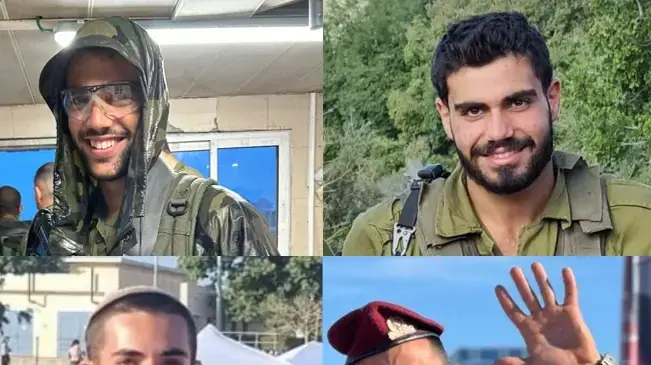It is doubtful whether there are many more turbulent positions in the ground army than commanding a commando brigade. This is not only the intensive, endless operational activity in all arenas, every night, with complex operations that often spill over into live-fire combat at the risk of human life – it is also the constant readiness for escalation or war in all arenas, with an emphasis on the north, including particularly challenging and dangerous combat scenarios.
The person who led the commando brigade in this stormy ocean for the past two years is Col. Manny Liberty. His tenure was particularly complicated by a dramatic event: the bilateral shooting, during which two company commanders were killed by their comrade's fire. The entire IDF was shaken by the dramatic event, which left many annexes in its wake. Liberty was required to lead the investigation of the incident and the implementation of the conclusions, as well as the rehabilitation of the unit, which experienced a particularly severe crisis, which culminated after the ouster of its commander following another incident.
Now, a moment after finishing his job and just before leaving for a year of study in the United States, he talks, for the first time, about the deaths of Itamar and Ofek, about the crazy operational activity in Judea and Samaria (and other actions that receive much less publicity), about the preparations for war in the north and about the motivation for service and the discourse surrounding the legal legislation.
He is 44 years old, married to Einat, father of three (Shira, 15, Matan, 13, Maya, 8). Born in Dimona, his wife in Omer, they have lived on Kibbutz Beit Kama for the past 20 years. Liberty enlisted in the Haruv Battalion and served in it for seven years, continued as a company commander in the Nahal Reconnaissance Unit, commander of the Duvdevan Fighters Company, studies that were discontinued in favor of a position as battalion sergeant in the Second Lebanon War, and later as a battalion commander in the Nahal reconnaissance battalion, at the Nahal training base and in Bahad 1, commander of the Eastern Brigade on the Lebanese border (769), the division officer of the Southern Command, and for the past two years commander of the commando brigade.
Four things were the highlight of those two years for him. "The first is people. There is an event here that is bordering on magic. The second is the operational activity. I thought that during my time in Cherry after Defensive Shield I was a great hero. Today's warriors face things a hundred times more complex. It's a different boldness, a different amount of fire, there are company commanders in Cherry who started their job in July and you have to find the weeks when they didn't have any encounters. It's crazy. The third thing is training. We trained in every hole, both in Israel and abroad, we were in Greece, now we have returned from Cyprus. And the fourth thing is Ofek and Itamar. It's all in the shadow of it."
Major Itamar Elharar and Maj. Ofek Aharon, two company commanders in the Egoz unit, were killed in January 2022 by another officer in the unit in Nabi Musa. The two went on a night patrol following the theft of equipment from the unit, and were shot by the officer, who also went on the same mission and believed they were the equipment thieves. The shooting officer, Lieutenant N., was recently indicted on charges of negligent manslaughter.
Can you explain to yourself how this happened?
"It hurts how simple it was. From the moment a person goes out alone, puts on a weapon, puts on a helmet, puts a night vision device on his eyes, cocks a bullet with a weapon, it's like taking out a torpedo missile and there is no turning back. From there nothing good can happen. It's like two trains colliding with each other. An event that is bordering on hallucinatory. An IDF officer is not supposed to go out alone. It breaks through every possible mechanism."
Ofek Aharon z"l,
Itamar Elharar z"l, Photo: Danny Lachmi
There were glitches on their part as well.
"They did bad things, and we described them too. They drove at night, searched a Bedouin encampment without a permit, and also cocked a bullet in the barrel, but in the end there is a group of four people here, three of them commanders and one sergeant major, who went out to patrol out of their sense of responsibility, so they wouldn't have their equipment stolen again. As far as they were concerned, there was no scenario in which they would have another officer in front of them. He's not supposed to walk alone in the field, no matter what terrain."
That's exactly what I asked: how did it happen?
"I guess a sense of I'm allowed. That I am capable. It's overconfidence that an officer is as strict about his people as he is about them. We took 100 people in the unit. We broke them down into groups with consultants. Alongside many good things we discovered, they said that the commanders in the unit have a feeling that they are more capable, that they are allowed more than others. That was the heart of the event."
In other words, a problematic culture.
"Unequivocally."
"We admitted we were in crisis"
This culture is nothing new in elite units. The walnut has two sister units, Magellan and Cherry. The first was the incident in which the fighter Eli Hayut was seriously injured and left paralyzed after jumping from a Humvee into a bush as part of a dangerous tradition, and in Cherry there were a variety of incidents involving playing with weapons, some of them deadly. But despite the harsh findings that arose in the unique investigation led by Liberty Baghouz, it was decided not to remove the unit's commander at the time, Lt. Col. Ephraim Tehila.
"At that point in time, I thought his harshest punishment was not to go," Liberty says. That he is the one who has to correct the things that happened under his responsibility, and when he finishes his job, not to promote him to brigade commander. In my view, it was a dramatic, extreme punishment."
Lieutenant Colonel Ephraim Tehila, who was removed from command of the Egoz unit, photo: Yossi Zeliger
Tehila was dismissed after Israel Hayom's military correspondent, Lilach Shoval, revealed that he had lied to representatives of the Nature and Parks Authority about the circumstances of a fire breaking out in the Golan Heights (the fire broke out as a result of the activation of an explosive brick during the unit's training). "I had a really hard time with it," Liberty says. "Just as difficult as the event itself."
Let's go back to the event. To people's state of mind.
"They took the incident [of equipment theft] very hard. No one urged or threatened them. When they picked up the phone and told me, I told them, 'Bummer, too bad, investigate this and keep things a little more.' Is. Tehila almost didn't say anything to them either, and we investigated it from every possible direction. But they took it really hard, as a failure.
"You have to understand these units, these are people who don't like to fail. That's what got them into this situation."
How do you rehabilitate a unit after such an event?
"We had to admit that we were in a crisis, that there was a problem that if we didn't deal with it, we would wake up in a few months with a bigger problem. We defined four circles for treatment: the first is the shooting officer, in his mental context. The second is the bereaved families, which have become a family as far as I'm concerned. The third is in the unit itself, where we did a deep process that lasted over days and weeks and months. And the fourth circle is the understanding that if it happened in Eguz, which is a magnificent unit, then we have to check what is happening in Magellan and Cherry and in our school."
You understand better than I do that this is the case. That the problem wasn't just in the nut.
"Unequivocally yes, and any attempt I make to embellish it or connect the lines will be unserious, you won't believe me and I won't believe myself. Listen, commandos serve people with crazy ability, with crazy creativity. 70 percent would have been accepted to be in 8200. But they are here, highly motivated - a person who puts 50 kilos on his back and walks alone in a 40-kilometer exercise, reaches a crazy sense of capability with himself. Our job is to take all these Rambos and Pops, and channel it to the right places. It's not easy, it's a lot of hard work."
And how do you know that you did it, that you won't be sitting in Washington six months from now and hearing about the next incident in the brigade?
"Anyone who tries to answer that is like a gambler in a casino. If you don't get up every morning and work at it, you're finished. So you work at it, and you also pay prices along the way, for example having your subordinates look at you and think you're a little hesitant or taking Uber safety promoters, and you have to have a strong enough backbone to look them in the face and tell them, 'Calm down young, let your elders explain to you how to really do the job.' No zbang and we're done. If we don't deal with it every day, we don't stand a chance."
He left office last week, and after two days in civilian life, he went on a week-long motorcycle trip with friends in Romania. Today he returns to Israel, and tomorrow night he will take off with his family for a prestigious year of study in the US Army. It will be a year in which he will be able to devote some time to his family, and get away from the operational intensity that during his time broke every possible record.
Liberty divides this activity into four. The first part is to thwart terrorist attacks and arrest wanted persons in Judea and Samaria. The second part is covert operations outside the borders of the country. The third is firefighting operations that include firing missiles, and the fourth part is intelligence gathering missions along the borders.
The main part of the activity, and also the more extroverted one, is the first, which takes place every night in Judea and Samaria. The wave of terrorism of the past year and a half requires the Shin Bet and the IDF to carry out incessant activity to thwart terrorist attacks, mainly in the heart of the Palestinian territory and under much harsher conditions than in the past. The level of threat from the wanted persons and the fighting on the ground have led to the fact that a large part of the activity is complicated, and is carried out by the units that specialize in this – the SWAT and police SWAT teams, and Duvdevan.
"We come with mixed vehicles. The gap between the unloading from the complicated vehicle and the beginning of the encounter is the biggest hallucination I live in, meaning I can't even digest it. If once the encounter was in the structure itself, in a pressure cooker or in a scan, today the envelope is ten times more complex than the target itself. The encounter in which three terrorists are killed inside a house became the easiest part of the operation. Home has become my Safe Zone because I'm behind cover, a maximum of three or four Matador missiles or three wall crackers, and a Done Deal for this event. The real story is the number of militants present in any given area cell. It's a huge event."
This activity is carried out with phenomenal success: almost all attacks are thwarted and wanted persons are arrested or eliminated, and the IDF has very few casualties ("Touch wood on every possible tree," he says). What is the Kuntz patent? "First of all, the sonic sophistication. And we have also developed advanced techniques to respond to the threat from the environment, by surprise."
How do you explain the level of violence on the ground?
"There are quite a few reasons, from Iran and Hezbollah and Hamas and Islamic Jihad that fuel everyone here, with a crazy atmosphere of incitement, to the incompetence of the Palestinian security forces in certain areas. In the southern West Bank, they have high ability, but in the northern areas it is harder for them, and apparently they have no motivation. And for that, there is an insane amount of weapons on the ground, as well as elements of despair and frustration."
If there are so many weapons on the ground, why are most of the militants waiting for you in Palestinian territory and not going out to carry out attacks outside?
"Because Fuchs started his job in August '21 and immediately shifted into fifth gear. I'll make it metaphorical to you: I had a farewell night last Wednesday, and I asked that one evening the units not work. I wanted all the people to sit comfortably with me, eat dinner, thank them. At one o'clock in the morning Duvdevan went on a raid in Gush Etzion, and the two fire companies in Magellan and Egoz were in the bushes somewhere, in short - this is activity every night in attack, but also in defense. Think about what they did with the seamline. Today, Fox does research on every point where 12 people passed, and these are points that a year ago 8,000 people would have crossed every day.
"He set up a place called a joint 'emergency room,' where all the parties sit, he measures brigade commanders at the level of how many prisoners they crossed... I was a battalion commander in 2012 in the Judean Citadel area. Every Saturday night more than ten thousand people would cross my place in the direction of Lahav and Be'er Sheva. Today there is also a fence, also battalions, also activity. You need to see the operational groups of Judea and Samaria on WhatsApp. How a night ends, and it's every night. And after that, they write articles about him and write signs about him. This is a man who gives his life so that nothing happens. Simple as that."
The mission of the commando brigade goes far beyond Judea and Samaria. In the next war, it is supposed to maneuver deeply, to the enemy's rear, and to decisive there. Even before that, it is supposed to be the first available force to confront elite enemy units along the borders, led by Hezbollah's Radwan unit on the Lebanese border.
"The longest time I have commanders in the 91st Division. We have signed three operational plans, from the lower level of preparation for an attack, through days of battle like we had in Gaza, to war. We're dealing with it endlessly."
Do you see the political echelon deciding to maneuver in depth?
"I want decision makers to do it with reverence and a lot of discretion. We proved in an operational model three weeks ago that we can do it, but getting the commandos in depth is a move you make only when there is no choice, or in order to prevent a situation where there is no choice, it's a crazy decision."
And will you be able to bring about a significant achievement?
"With a lot of modesty, yes. Imagine a commando brigade landing at Masmiya Junction or Mesovim Junction. Who will reach it and stop it? By the time they reach her, she's already drinking coffee in the Kirya or at the Tel Aviv district headquarters. Hezbollah cannot be strong at every point."
Let's go back to the borderline. You were a brigade commander there, leading operations there. How close are we to escalation, especially against the backdrop of belligerent rhetoric on both sides of the border?
"Last week, all the brigade commanders were with the chief of staff, and he said we were preparing for war because this is our command, a way of life. Our job is to be more about preparation and less about talking. Be humble, enjoy the intelligence we bring, engage in training."
How good are they?
"A man with a rifle in a closed or built-up area or in a thicket is a challenge that I suggest not to take lightly. Hezbollah is a challenging enemy, and certainly the Radwan force. It will stink, they have thousands of rockets and anti-tanks, but they will end the next war in Lebanon differently. It will be difficult for us, and it will be disgusting, and it will be full of fire and soldiers will die, but we will end it with a result that is very bad for Hezbollah because we are much better. I know what we know defensively, and in intelligence and offensively. It's a big challenge, which we'll win."
A bit of Orde Wingate
Recently, the internal debate over the profile of those who serve has intensified: who enlists and volunteers for combat units, periphery versus center, secular versus religious, left versus right, and into this cauldron has been embedded the internal storm surrounding the legal legislation, which has also stirred the IDF.
"We have commandos Dimona and Ashkelon and full of Tel Aviv, and full of Judea and Samaria, and Ethiopians and Druze, all highly motivated fighters. Those who killed the terrorist in Dizengoff were a fighter from Tel Aviv and a Tel Aviv team commander in Magellan, who did not know about each other and live on the same street. One was on the roof, having a barbecue for friends, and the other was at home. They heard the shooting, the officer ran with his pistol, the soldier took his weapon, which was broken into three, put it together and fired. So all this talk about Tel Aviv is stories and legends. . With all the polarity that exists in Israeli society, everyone dresses for what he wants to dress. Israel is here with you of its highest quality, and it's a pleasure."
And how do we deal with the current polarization?
"Anyone who says it has no effect on what happens in the army is lying. On the other hand, I wish we would infect the whole country with the good that is happening here, because alongside the complexities, cohesion between people is on the edge of magic, and woe betide us if we do not preserve it."
Do you talk about it with the soldiers?
"Endlessly. They let them vent without taking an opinion. We ask them to say what they are experiencing, what is difficult for them, without taking sides, just with explaining how vital and critical we are. I think this intense dialogue is why we are dealing with this successfully. That, and of course the activity, because when you have a common goal, when the settler and Tel Aviv start a zig together in Balata, then everything is clear."
Are you at peace with the name "Commando"? It's a bit improvised, isn't it?
"I think it's an exemplary name. Commandos are first and foremost values: I don't come back until I perform. And it's a ruse, and it's being part of something that's bigger than you, a little bit of Orde Wingate and stuff. It's a name that symbolizes all the good that a fighter in the Israel Defense Forces can have."
Wrong? We'll fix it! If you find a mistake in the article, please share with us

